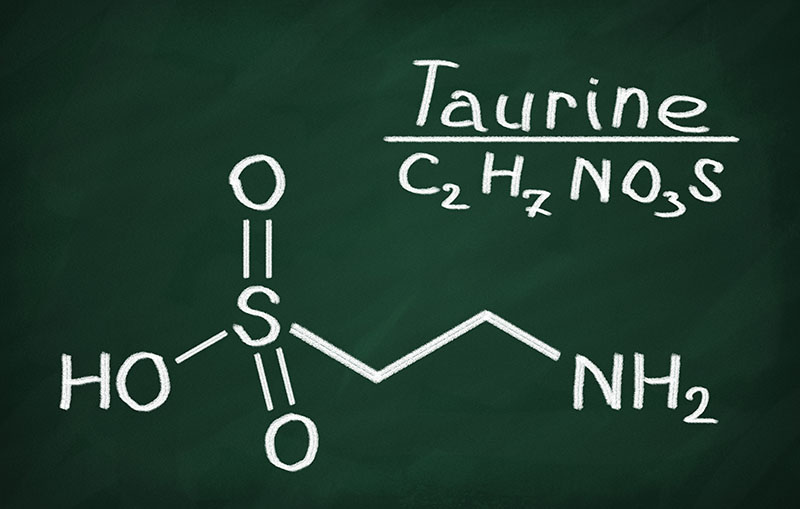
Everyday Chemicals Are Screwing Up Your Testosterone
You may have already read my other article on 7 habits which are killing your testosterone. There was a section in that on Water because

Taurine is one of the most widely used ingredients in pre-workout formulas, energy drinks and sometimes even added to protein shakes but does it really provide a measurable benefit?
I went through all the human case studies one by one to find out and what I discovered surprised me a bit as the results were not as cut and dry as many would lead you to believe.
Most of the time (although not always) when a particular ingredient becomes mainstream its potential benefits get blown way out of proportion.
And sometimes there is no actual scientific evidence backing it up at all, like what happened with fenugreek and testosterone.
But as the old saying goes “if they tell it to you enough times, you’ll naturally start to believe it”. Unfortunately that seems to be the case with taurine as the scientific evidence simply does not backup most of the hype.
Let’s take a closer look at the HUMAN case studies and you can judge for yourself.
Taurine along with caffeine was given to 20 NCAA Division 1 Football players in a test to determine if it helped increase sprint times and anaerobic power.
The study was a double blind crossover study which means that neither the football players nor scientist new who received the supplement or the placebo until all of the numbers of the test results had been ran.
At the end of the study, the researchers found neither the sprint times nor the anaerobic power of the football players were increased. (1)
Some studies in mice suggest it may, however, tests on humans, as is often the case, tells a very different story.
48 participants in a double blind case study recieved one of the following possible combinations of supplement:
When given caffeine alone, the participants saw an increase in working memory as well as positively reduced simple and choice reaction times.
When the participants received 2,000 mg of taurine on its own, they saw an increase in choice reaction time, however, it reduced working memory tasks!
At the end of the study, the researchers concluded that caffeine alone and not taurine is responsible for any reported changes in cognitive performance after consuming energy drinks. (2)
Researchers wanted to find out if taurine as a stand alone supplement or if combined with BCAA’s would help minimize delayed onset muscle soreness (DOMS).
36 untrained males were given one of the following supplements three times a day for 2 weeks prior to exercise and 4 days after exercise.
The researchers found that the combination of taurine along with BCAA’s did in fact improve recovery time after exercise over either taurine or BCAA’s by itself. (3)
However, there are a couple of important points which need to be noted here.
Personally, I would like to see a study on men with weightlifting experience and using a single dose of taurine in the 1 – 2g range.
I don’t believe I have ever even seen a pre-workout drink with more than 2g of taurine in it.
While this study does certainly warrant future studies on muscle recovery, it is far from conclusive as downing 2 grams of taurine 3 times per day is not practical for most people even if it will still have a positive effect on trained men.
The evidence suggests it does! The best human case study I could find for this one was done using trained middle distance runners.
8 males were given either 1g of taurine or a placebo in a double blind crossover study and then asked to run a 3k (1.86 mile) time trial.
When the men took taurine before the time trial they saw an average of 1.7% improvement (12 seconds) over their placebo time. This may not seem like a huge difference but 1.7% in a highly competitive race could mean the difference between 1st place and missing the podium. (4)
Interestingly, relative oxygen uptake, heart rate and rate of perceived exertion remained unchanged so the researchers were unable to identify exactly why there was a performance increase.
However, in terms of sports performance, athletes don’t need to know exactly why a supplement is helping them improve as long as they know it is safe and effective.
It would be nice to see another trial on more than just 8 trained individuals so we could see a larger sample size but that’s enough for me to confidently say, unless it is later disproven, I’m taking 1g of taurine before a race.
Taurine does not seem to have any significant effect on anaerobic power or mental performance on humans.
It “may” aid in decreasing muscle soreness but we need to see a human case study on trained individuals to see if this holds up. At any rate there are likely better and certainly more proven supplements to speed recovery like creatine, nitrosigine arginine and l-citrulline malate.
It does appear to play a role in increasing aerobic capacity and unless a future, larger scale study comes out disproving the results, I would not hesitate to supplement with it for that purpose.
References

You may have already read my other article on 7 habits which are killing your testosterone. There was a section in that on Water because

Rhodiola Rosea stands out as a potent adaptogenic herb with a rich history of traditional use and a growing body of scientific research. Revered for

In this comprehensive article, we will explore what L-tyrosine is, its benefits as a pre-workout supplement, the correct dosage, and other potential health benefits it

Betaine anhydrous is becoming an increasingly popular ingredient for pre-workouts. In this article, we will explore the fundamentals of betaine anhydrous, its connection to carnosine,

Beta-alanine is a pre-workout powerhouse. From boosting workout performance to potential anti-aging effects, discover why this amino acid is a favorite among health buffs.

You may have already read my other article on 7 habits which are killing your testosterone. There was a section in that on Water because

Rhodiola Rosea stands out as a potent adaptogenic herb with a rich history of traditional use and a growing body of scientific research. Revered for

In this comprehensive article, we will explore what L-tyrosine is, its benefits as a pre-workout supplement, the correct dosage, and other potential health benefits it

In the ancient wilderness, a legendary creature prowled the untamed lands—a fierce and noble Alpha Wolf. This majestic beast possessed an aura of strength and resilience, leading its pack with unwavering authority.
In a parallel realm, a group of visionary alchemists delved into the mysteries of nature, seeking to create potent elixirs that could unlock the true potential of those who dared to embrace their inner power.
As fate would have it, these paths crossed, and an extraordinary alliance was forged. The Alpha Wolf and the alchemists found common ground in their pursuit of greatness, and thus, Alpha Wolf Nutrition was born.
United by a shared passion for excellence, the Alpha Wolf and the alchemists dedicated themselves to crafting supplements that harnessed the raw force of nature, empowering individuals to conquer their inner and outer worlds.
At Alpha Wolf Nutrition, we draw inspiration from the primal instincts of the Alpha Wolf—the embodiment of strength, leadership, and vitality. We believe that every individual possesses a dormant power within, waiting to be awakened.
Through our meticulously crafted products, we strive to unleash this dormant potential, allowing you to thrive in the face of challenges and embrace your true nature.
Our commitment lies in providing you with the highest quality, scientifically proven ingredients, carefully curated to deliver optimal results. We leave no room for guesswork, basing our formulations on human-backed research to ensure real, tangible benefits. With us, you’ll find no “proprietary blends” or token additions—just pure, effective dosages that fuel your journey to greatness.
Join the pack of Alpha Wolves and embark on a transformative journey with Alpha Wolf Nutrition. Embrace your inner strength, rise above the ordinary, and conquer your aspirations. Unleash the power within and let the spirit of the Alpha Wolf guide you to achieve your highest potential. Welcome to Alpha Wolf Nutrition, where the path to greatness awaits.

Alpha Wolf Nutrition is based on real science and results for the people we serve.
We do not cut corners, we do not hide behind “proprietary blends” and we do not put in worthless amounts of token ingredients to fill up a label.
What we do, is kick ass!

© 2016 – 2023 Alpha Wolf
Discount Applied Successfully!
Your savings have been added to the cart.